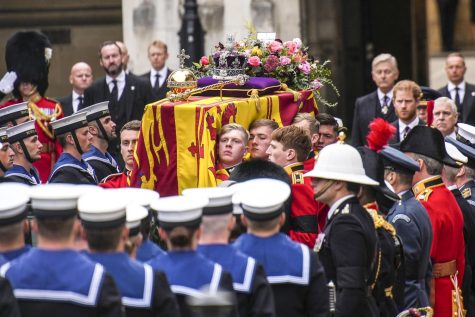
Operation London Bridge took immediate effect after Queen Elizabeth’s II death. This was her funeral plan which has been in construction since the early 1960s. It includes the announcement of her death, the funeral proceedings, and the coronation plan of King Charles III. The first announcement of the Queen’s passing was made by the queen’s private secretary through a coded message: “London Bridge is down”. Flags across the country were lowered to half mass. Additionally, President Joe Biden ordered the lowering of the White House flags in respect of the British Monarch. Simultaneously, Paris turned off the Eiffel Towers lights on Thursday night.
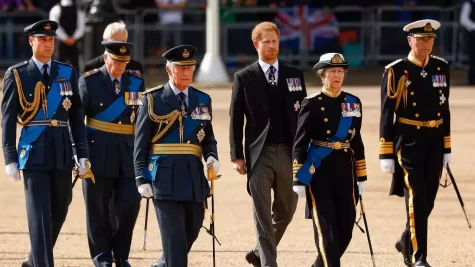
After her death, England conducted a 10-day mourning period which shut down businesses, schools, etc. During this period, economists worry about increased inflation, the risk of recession, and the postponing of critical economic policies. In response, the new Prime Minister, Lizz Truss, did implement an energy aid bill within 2 days of her appointment. This bill hopes to combat rising energy costs and inflation by stabilizing energy prices for 2 years for individuals and 6 months for businesses and public institutions. This will hopefully help England with combatting its reliance on Russian energy in support of Ukraine.
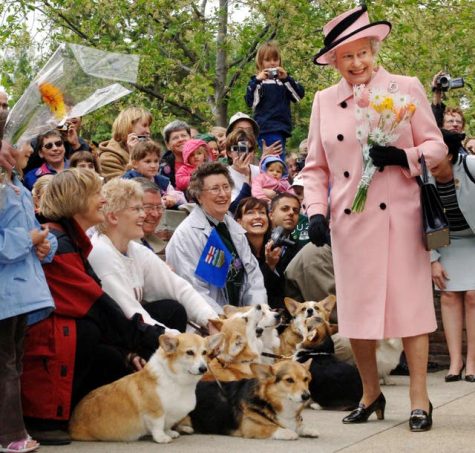
The Queen brought stability to England. Four years before she took the throne she pledged: “I declare before you that my whole life, whether it be long or short, shall be devoted to your service, and the service of our great imperial family to which we all belong”. The Queen worked every day, even on Christmas. She attended to a red box which included government papers from ministers in the United Kingdom and her Realms. Although the British monarchy is a controversial subject, the Queen undoubtedly gave her life to the monarchy and the well-being of all English citizens. She will forever be remembered for her bright-colored dresses and love of corgis.
Personal Experiences:
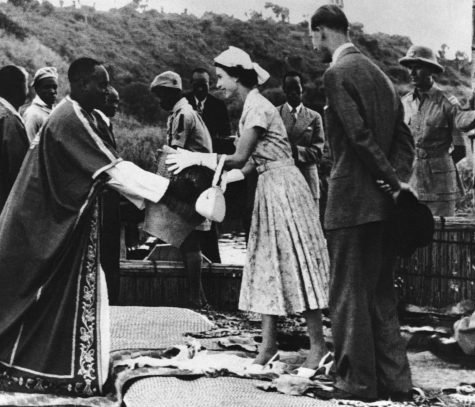
As Mrs. E said, “it is one of those moments that you will remember for the rest of your life. What you were doing, where you were at, who you were with”. Personally, I was at an Asian Awareness meeting when I heard the news. Most of my family lives in England, so I immediately texted them knowing that they would be grieving. My Grandmother’s response was “I am really sad as I remember seeing her before her father died. She had come to visit Uganda and was at the Tree Top hotel. They gave the schoolchildren Cadbury bars for her coronation and my father got a mug. She was a beautiful person”. The Queen visited Uganda in 1954 when my grandmother was a small child. Mrs. E also shares a similar story of her father in Nigeria during the same year. She was incredibly saddened by her death and even took off work on the day of her funeral.
Although many appreciate the legacy of the Queen, many still feel that the
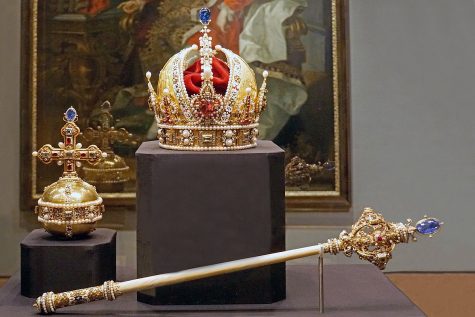
English monarchy should be held accountable for its imperial rule which corrupted the economy and society of many countries. In particular, Leila Tabrizian, a senior at Magnet, states: “I really dislike the British monarchy for their role in thousands of years of colonialism and imperialism that brought prosperity to the British while exploiting people to the point where they are still dealing with the consequences of their presence to this day. The wealth of the British empire is built on the exploitation of African and Asian countries. Just look at the British jewels: all of them stolen (or the artifacts in the British Museum for that matter). Queen Elizabeth oversaw countless British atrocities and never apologized or worked towards some level of reparations for the people at the hands of this unforgivable violence. Her legacy is one that maintains true for the rest of the British monarchy: one of power and exploitation.”
Mr. Cosgrove whose parents are from Ireland shares similar opinions, he states: “I would say it is reasonable to both commend the queen on her life of service upon her passing while at the same time discussing the obvious negative impacts colonialism has had on different regions and countries. She herself isn’t responsible for colonialism. But my question is how hard did she fight against it and its worst aspects? Being a first-generation Irish American and having spent a lot of time in Ireland and England, where I also have relatives, I didn’t see enough vocal advocacy for peace prior to the Good Friday agreement.”
Sources:
Washington Post
NY Times
CNN
